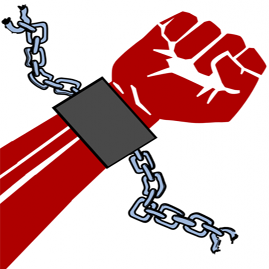| |
When one hurts or kills a women
one hurts or kills hummanity and is an antrocitie.
Gino d'Artali
and: My mother (1931-1997) always said to me <Mi
figlio, non esistono notizie <vecchie> perche puoi imparare qualcosa da
qualsiasi notizia.> Translated: <My son, there is no such thing as so
called 'old' news because you can learn something from any news.>
Gianna d'Artali
CLICK HERE ON HOW TO READ
ALL PARTS OF THIS SPECIAL
<The stench of death>
<Canada's murdered women and girls.>

Between 8 Nov 2021 and 17 Feb 2022 AL Jazeera published a serial of
articles about femicides of Canadian Indigenous women and girls of which each word is so
heartbreaking that it takes a lot of courage to read the whole serial. Still I challenge you to do so! I divided it according to the
number of articles and quoted from them ending with a read more URL. All
articles were written by Brandi Morin (1 to 10) except the last one
(11th.) written by an Al Jazeera team:
Related:
Women's Media Centre
28 Mar 2022
Shilu Manandhar
<<Question of Honor: Assaulted Girls Strive to Receive Justice.
Sarlahi, Nepal — The careless joys of childhood — the freedom to step
out of the house any time of day; to play hide-and-seek in the tall
grass of the sugar cane fields; to walk to school unescorted — was
suddenly snatched away from the 14-year-old that day. That day, the
teenager, like many girls her age helping their households in southeast
Nepal, went to the nearby fields to cut grass. Tetri, her mother, was
working in their one-floor brick-and-mud house when neighbors came
running. She knew from their expressions that something bad had happened.
Running to the fields, she learned that her daughter had been assaulted.
Child rapes are rising at an alarming rate in this South Asian country.
Nationally, well over half the rape cases in the last five years
involved children, climbing from nearly 64 percent in a one-year period
from mid-2018 to 2019 to 65.8 percent in 2020-21, according to Nepal
Police. Many cases don’t get reported. In more than 70 percent of the
reported cases, the perpetrator was known to the person being raped; 10
percent were blood relatives. In the case of this teenager, the accused
rapist was a neighbor and respected schoolteacher. Women and girls in
Nepal face a culture of stigma, sometimes segregated in special huts
during menstruation in a tradition known as chaupadi, and accorded
citizenship rights only through male relatives. Nepal has one of the
highest rates of child marriages in Asia, according to the United
Nations Children’s Fund, or UNICEF. These dynamics, along with a deeply
entrenched caste system that prioritizes a woman’s honor, make it
challenging for girls to seek justice against their perpetrators. <Right
from birth to death, a girl in this country is discriminated because
they are seen as a burden, because they have to provide dowry and
eventually leave the house after marriage,> says Srijana Adhikari,
executive president of Women Acting for Transformative Change, a
nongovernmental organization that promotes women’s rights. And so, when
it comes to crimes, women, especially girls, become easy targets. In
this small village with no hospital or police station, everyone knows
everyone. Houses stand close to each other, almost all made of bamboo,
mud and bricks. Months have passed since the incident, but no matter how
hard Tetri wants to forget, whenever the family has an argument with the
neighbors, they make sure to taunt her for what happened to her daughter,
says Tetri, who asked to use only her first name due to concerns about
stigma. Tetri speaks Maithili and communicated in Nepali through a
neighbor who is familiar with her daughter’s case.
In Nepal, like neighboring India and Pakistan, rape is not just an issue
of violence. There’s an element of honor attached to a woman’s body.
“There is a social stigma associated with rape,” says Umesh Kumar Gupta,
senior project coordinator at Save the Children, an international
nongovernmental organization. <Most times, cases don’t get filed due to
shame, stigma and a family’s reputation in the village.> On paper, the
law on violence against women and children is clear. Child rape is a
serious criminal offense in Nepal, carrying prison sentences from seven
to 20 years. The law also states that if a complaint is filed, the
accused person can’t leave the country. But when Tetri’s daughter was
raped, she says, the man fled to India. Tetri filed a case with the
police. But despite multiple police station visits, she says nothing has
been done.>>
Read more here:
https://womensmediacenter.com/women-under-siege/question-of-honor-assaulted-girls-strive-to-receive-justice
|


